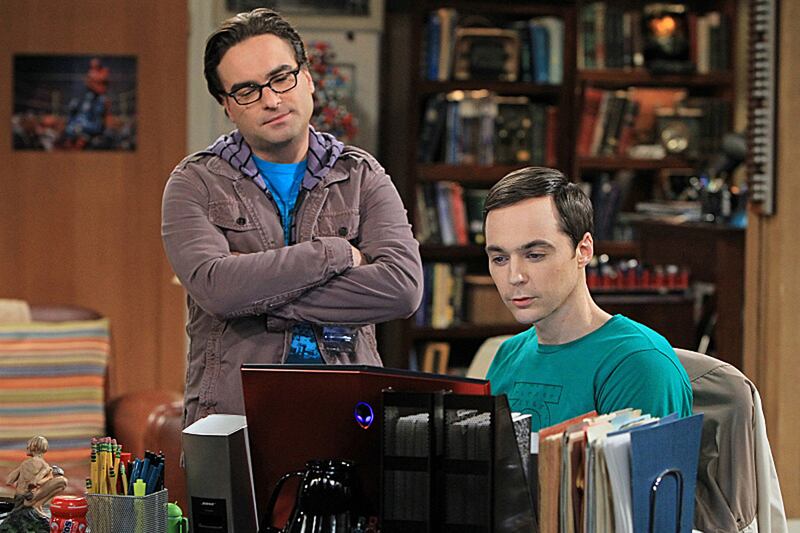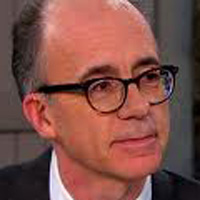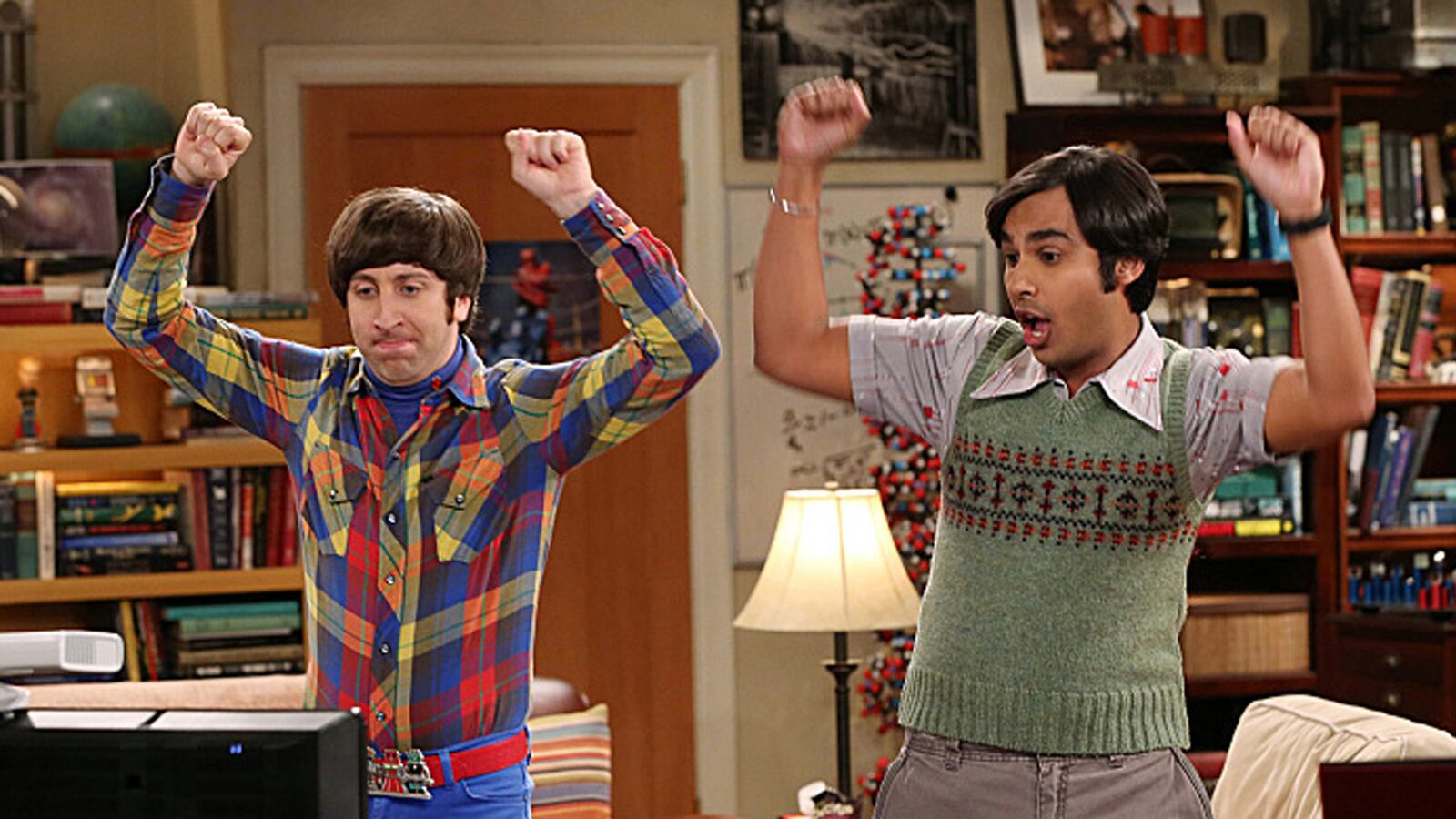Six seasons in, The Big Bang Theory is more popular than ever, and better than ever. Which is not to say it’s a great show, as much as I always root for popularity and greatness to overlap. (If I didn’t, I’d be reviewing poetry full-time.) What BBT has going for it this season is its clear, crisp communication to its audience that it completely understands the personality and function of every member of its growing cast, no small achievement for a series that started out as a simple story pitch: two nerds (Jim Parsons and Johnny Galecki) try to interact with the hot girl (Kaley Cuoco) across the hall.

The series has sextupled-down on that premise, first by making egghead pals Howard (Simon Helberg) and Raj (Kunal Nayyar) co-stars, and then giving both plus Sheldon brainy love interests (played, respectively, by Melissa Rauch, Kate Micucci, and Mayim Bialik). And did this without reducing the screen time of the show’s only nonintellectual, Cuoco’s Penny, while filling in her characterization well beyond “hot girl” to interestingly tough-minded, probably-from-an-abusive-family realist.
The series has successfully navigated tricky transitions, convincing us, for example, that Penny would ultimately fall for, or at least date out of curiosity, an ambitious, aware nerd like Galecki’s Leonard. And Big Bang has been downright brave in following the aloof, chilly genius of Parsons’ Sheldon into some dark, sad, or off-putting places. (Sheldon can be cruelly selfish, and he has exhibited traces of a casual racism derived from his tendency to extrapolate cues for social interaction from pop-culture stereotypes of all sorts, including pernicious ones.)
In all this, the series is helped immeasurably by the extraordinarily expressive-through-inexpressive-gestural performance of Parsons. I’m not going to weigh in on the delicate, internet-lively subject of whether or not Sheldon might be fairly diagnosed with Asperger’s Syndrome, but the collaboration between Parsons and the show’s core producers—creator Chuck Lorre plus Bill Prady and Steve Holland—have given us the most vivid portrait of a functioning social and sexual maladaptive ever seen in a sitcom. You have to go back to Wally Cox’s 1950s title character in Mister Peepers for anything close to a precedent, and don’t say Steve Urkell—Jaleel White was superb, but wasn’t permitted the kind of depth Parsons is free to explore.
A multi-camera sitcom when multi-camera shows aren’t cool, BBT is in the odd position of being a big fat hit that wins Emmys for Parsons without accruing much in the way of hip-TV cred. Yet its bottom-line achievement is impressive: It’s triumphed over this country's ingrained dislike of intellectuals by making them inferior to us in one area at which Americans pride themselves in excelling: socializing.
One benefit of having hyper-verbal physicists as your main characters is that the sentimental moments designed by mass-market sitcoms to elicit a massed Awwwww from the studio audience is that these scenes don’t come off nearly as soppy and manipulative as they do on other shows. This season, Bob Newhart made a superb appearance as “Professor Proton,” a childhood TV-hero of Sheldon and Leonard’s, whom I saw in some reviews compared to Bill Nye but was actually much closer to Don Herbert’s 1950s show Mr. Wizard, whom my fellow baby-boomer Chuck Lorre would doubtless remember. The 80-something Newhart’s dry, measured comic timing was a beautiful complement to Parsons’ controlled-manic style, and the effusion of rare emotion Sheldon displayed in this half hour, directed at a man he admired who was near the end of his life, was both touching and scrubbed free of sentimentality.
Another recent high point: A few weeks ago, BBT came as close to the post-modern-y, self-and-TV-referentiality that its time-period also-ran Community turned briefly into something like an art, when Sheldon went into a meltdown over the fact that the Syfy network had cancelled Alphas and had thereby failed to provide closure to the series’ cliffhanger. (The episode’s title was “The Closure Alternative.”) I’m just going to assume you didn’t watch the episode and quote one of the best lines: To support his idea that all serialized cult shows must be allowed to finish on their own terms, Sheldon noted that Firefly had provided fans with a mythos-ending movie, Buffy the Vampire Slayer continued on as a comic book, and, he tartly noted, “Heroes gradually lowered the quality season by season until we were grateful it ended.”
The Big Bang Theory, by contrast, has raised its quality level season by season. Even as the upcoming fall season’s new sitcoms are announced and the jokes from their preview clips pored over for both quality and hit-making potential, BBT is finishing up a season in which it remains both underrated and high-rated, a combo that currently looks like one new pop-culture model for long-term success.






